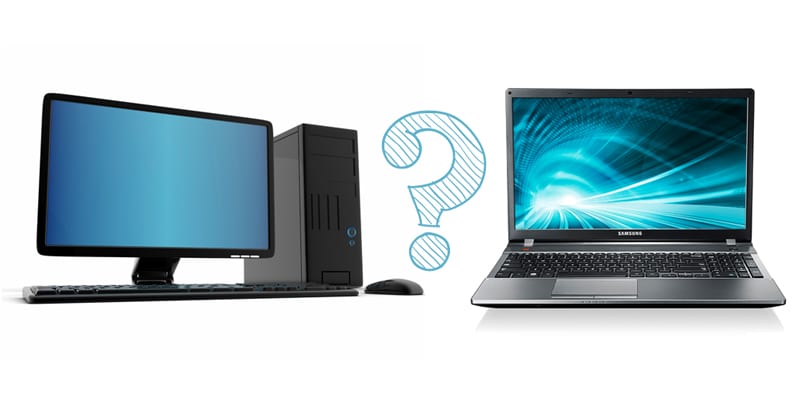
In today’s fast-paced world, computers have become an essential part of our lives. Whether for work, education, or entertainment, having the right device can significantly impact our productivity and overall experience. When it comes to choosing between a desktop PC and a laptop, it can be a tough decision for many. Each has its strengths and weaknesses, and understanding them is crucial in making the right choice. In this article, treemusketeers explore the differences between desktop PCs and laptops to help you make an informed decision that aligns with your needs and preferences.
The introduction sets the stage for our discussion on the key differences between desktop PCs and laptops. It emphasizes the importance of choosing the right device and how it can impact daily life.
Performance and Power
This section dives into the performance capabilities of desktop PCs and laptops. It highlights the advantages and disadvantages of each in terms of processing power and performance for various tasks.
Portability and Mobility
Here, we explore the portability factor that sets laptops apart from desktop PCs. We discuss the convenience of mobility and how it affects productivity on the go.
Form Factor and Ergonomics
In this section, we examine the form factor and ergonomics of desktop PCs and laptops. Factors like space utilization, screen size, and keyboard comfort are discussed.
Upgradability and Customization
Readers learn about the flexibility of upgrading and customizing desktop PCs compared to laptops, which often have limited upgrade options.
Display and Graphics
This section covers the differences in display options and graphics performance between desktop PCs and laptops, including considerations for gamers and multimedia enthusiasts.
Battery Life
The battery life comparison is essential for those who prioritize long hours of use without being tethered to a power source. We explore the pros and cons of both devices in this aspect.
Connectivity Options
In this section, we discuss the connectivity options available in desktop PCs and laptops, such as USB ports, HDMI, and more, and how they cater to different user needs.
Price and Value
Readers get insight into the cost-effectiveness of desktop PCs and laptops, considering the initial investment, long-term expenses, and overall value for money.
Software Compatibility
This section delves into the software compatibility aspects of both devices, helping users choose one that supports their preferred applications and operating systems.
https://vauro.net/technology/m2-mac-pro/
Security and Privacy
Here, we emphasize the security and privacy considerations that users should be aware of when choosing between a desktop PC and a laptop.
Environmental Impact
The environmental impact of electronic devices is an important concern. This section evaluates the eco-friendliness of desktop PCs and laptops.
Longevity and Durability
In this section, we discuss the longevity and durability of both devices and how they handle wear and tear over time.
Customer Support and Warranty
Readers learn about the after-sales service and warranty options available for desktop PCs and laptops, which can significantly impact the ownership experience.
Conclusion
The conclusion summarizes the key points discussed throughout the article and offers guidance in making the right choice between a desktop PC and a laptop based on individual needs and preferences.
FAQs
Q: Can a laptop match the performance of a desktop PC for gaming?
A: While laptops have come a long way in gaming performance, high-end gaming PCs still offer a slight edge in terms of raw power and graphics capabilities.
Q: Are desktop PCs more prone to hardware failures than laptops?
A: Desktop PCs generally have better cooling and ventilation, reducing the risk of overheating and hardware failures compared to laptops.
Q: Can I upgrade the graphics card in a laptop?
A: Most laptops have integrated graphics, making it difficult or impossible to upgrade the GPU. However, some high-end gaming laptops may offer limited upgradability.
Q: Which is more suitable for video editing, a desktop PC, or a laptop?
A: A powerful desktop PC is typically more suitable for intensive video editing tasks due to its higher processing power and better thermal management.
Q: Do desktop PCs consume more electricity than laptops?
A: Yes, desktop PCs generally consume more electricity than laptops, especially during heavy usage, but their performance is often proportionally higher.
In conclusion, choosing between a desktop PC and a laptop depends on individual needs and priorities. If raw power, upgradability, and customization options are crucial, a desktop PC might be the best fit. On the other hand, if portability, mobility, and versatility are paramount, a laptop could be the ideal choice. Understanding your requirements and considering the factors discussed in this article will help you make an informed decision that maximizes your computing experience.

